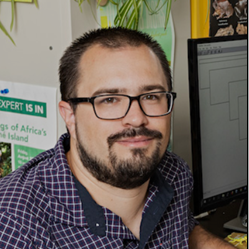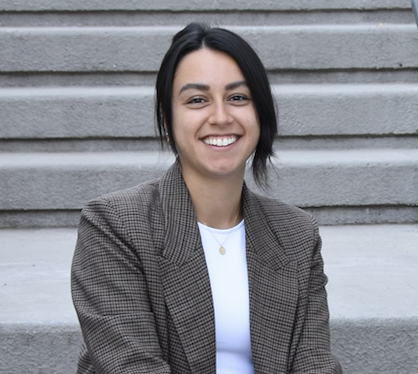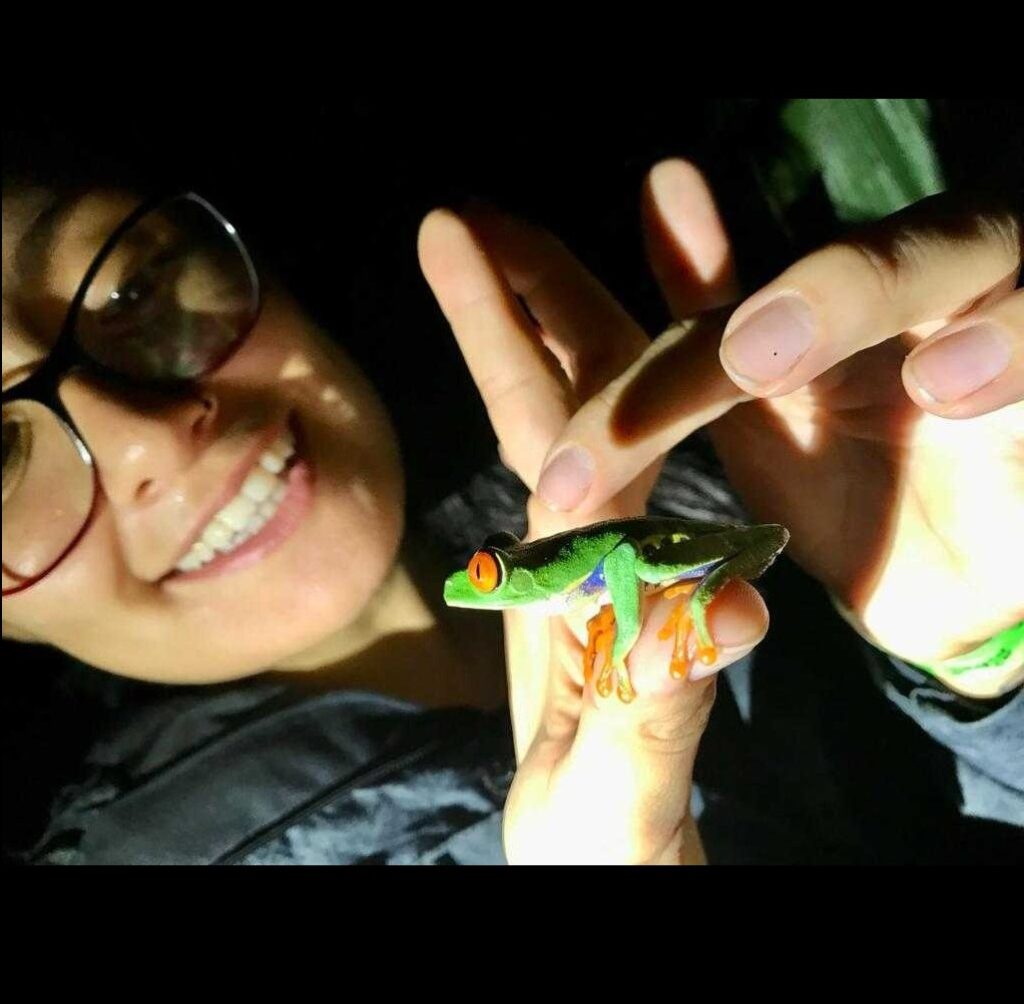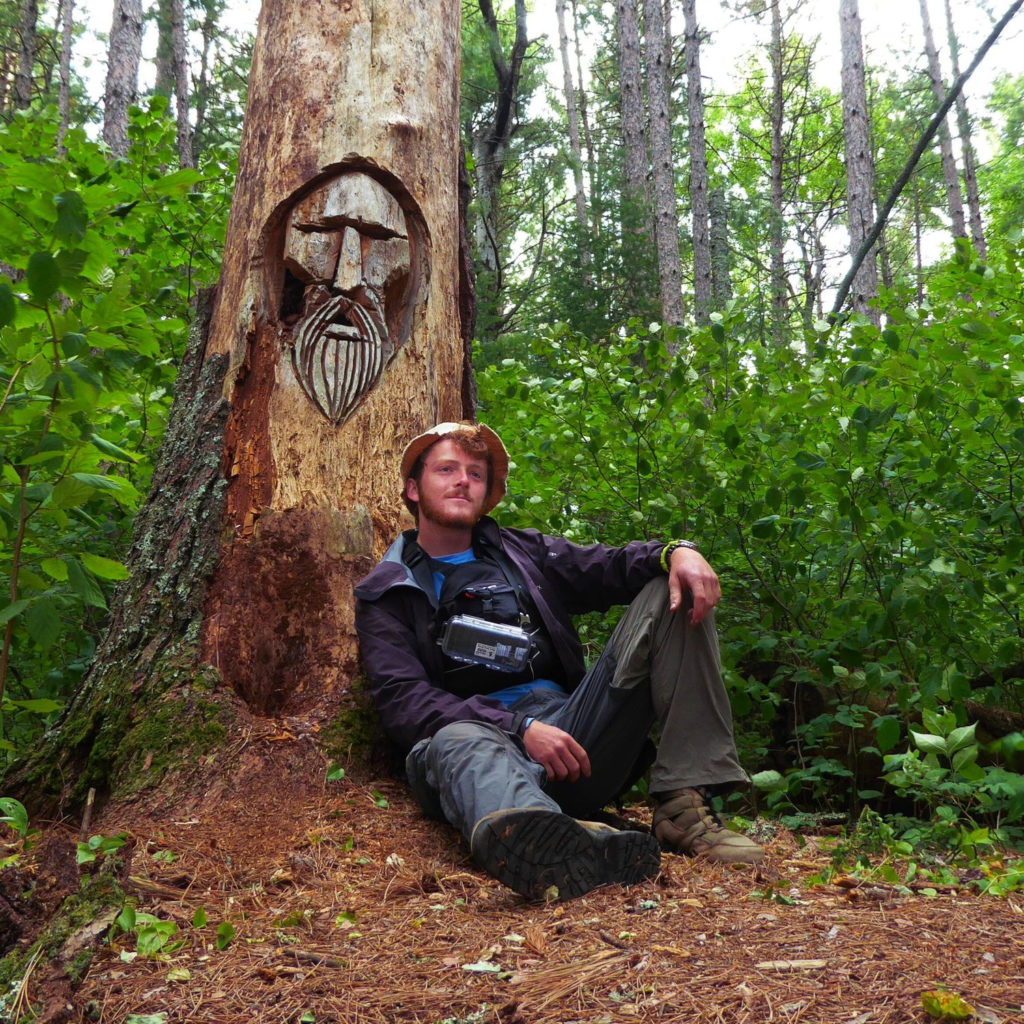Current Lab Members:
Ryan Schott - Principal Investigator
Assistant Professor, Department of Biology, York University
PhD (2018), Ecology and Evolutionary Biology, University of Toronto
MSc (2011), Ecology and Evolutionary Biology, University of Toronto
HBSc (2008), High Distinction, Evolutionary Biology, University of Toronto
Research Focus: The research in my lab generally aims to answer the question of how selection at the molecular level can shape morphological and functional diversity at the organismal level, particularly in the context of vertebrate visual systems. The current long term objective of my research program is to understand the mechanisms and drivers that have led to the vast diversity of vertebrate visual systems that we see in nature today. To accomplish this we leverage an innovative approach to investigate how and why vertebrate visual diversity has evolved across multiple organizational scale using a combination of comparative genomics and transcriptomics, molecular evolutionary analyses, and targeted experiments.

Taegan Perez – PhD Student
HBSc (2020) Distinction, Ecology & Evolutionary Biology, Evolutionary Anthropology, University of Toronto
MSc (2021) Ecology and Evolutionary Biology, University of Toronto
Taegan's research focuses on the molecular evolution of visual genes across the amphibian tree of life. Amphibians provide a remarkable study system to assess the interactions between visual genes and ecological variables such as activity patterns, life history patterns, and behaviours. Providing a direct interface between an organism and its environment, sensory systems like the visual system present an ideal model to study questions like these. As the most threatened vertebrate group, amphibians also hold incredible conservation value, creating unique opportunities for interdisciplinary work. Taegan hopes that by increasing the body of knowledge on how selection at the molecular level has shaped the functional diversity in the amphibian visual system will provide valuable knowledge to inform conservation decisions.
Previously, Taegan's research focused on assessing species level diversity of freshwater neotropical ichthyofauna in conservation areas. Species level identification of organisms forms the basis of effective conservation management planning. While both morphological and molecular methodologies for identification exist, accuracy and effectiveness of these methodologies varies depending on the study system being assessed. Taegan's goal was to assess differing morphological and molecular identification techniques to effectively determine species level diversity of neotropical freshwater fishes within the Barra del Colorado Wildlife Refuge in Costa Rica. Results from this work is being used to inform conservation decisions and management. Taegan is also continuing to build an effective curated DNA barcoding library for this area as part of a long-term project.
Contact: tjmperez@yorku.ca
Website: Taegan JM Perez MSc (wordpress.com)

Golnar Jalilvand – PhD Student
Research Focus: Investigating how vision has adapted to different light environments in different groups of reptiles and amphibians by studying different visual and non-visual genes.
PhD project: First part of my research focuses on the evolution of photoreceptor cells, and their expressed genes and proteins, in species among squamate reptiles and amphibians adapted to primarily subterranean habitats (fossoriality), which have evolved numerous structural modifications to survive and navigate this unique environment. It is predicted that species that spend more time underground will have eyes that gradually deteriorate over time and have more retinal pseudogenes, and even among them there are differences due to the level of their underground activity. The second part of my research is to investigate how vision may have diverged between two groups of turtles with different visual ecologies that diverged ~200 mya: Cryptodira (hidden neck turtles) and Pleurodira (side necked turtles). Our current understanding of turtle vision and visual systems is derived from Cryptodira and there have been no studies of the visual pigments or opsins from Pleurodira.
Master of Science. Acadia University (NS): “DNA barcoding of the maritime shrew, Sorex maritimensis Smith: using DNA sequence of the cytochrome oxidase subunit l gene in taxonomic and field studies a Canadian endemic mammal.”
Contact: Gol66@yorku.ca

Jhael Ortega – Master's Student
Research Focus: An Ecuadorian master's student brings substantial expertise gained from her undergraduate studies at the Pontifical Catholic University of Ecuador and her prior leadership in amphibian systematics projects at the QCAZ Zoological Museum, where she meticulously documented over 13 newly discovered frog species.
Currently situated in the Schott Laboratory, Jhael's master's project delves into the intricate molecular-level analysis of the visual pathway in frogs. This investigation systematically contrasts frogs proficient in vocalization with those that have forfeited this ability, alongside lacking auditory perception. The formulated hypothesis suggests that the visual system might have undergone evolutionary adaptations to compensate for the diminished vocal and auditory functions within this group.
Jhael's research undertakes the meticulous task of identifying molecular adaptations within the visual gene set of these frogs, specifically targeting those correlated with the prevalent diurnal lifestyle characteristic of this amphibian group.

Matthew Penuvchev – Honours Thesis Student
Research Focus: Molecular evolution of light detection genes in turtles' retina.
My project involves the study of the molecular evolution of light detection genes in turtles with a specific focus on two subsets: phototransduction and non-visual opsin genes. The objectives of this project are to determine if non-visual opsins are present or absent and to determine if there is any variation in selective pressures for phototransduction genes across a variety of turtles. Overall, the data collected from my project reveal unique molecular adaptation among the two suborders of turtles and reveal potential functional differences in phototransduction genes expressed in rods and cones.

Natalie Casola – B.Sc., Hons. Biology (2024)
Research Focus: Molecular evolution of visual cycle proteins in frogs and other vertebrates with different life histories and ecologies.
Natalie was a RAY undergraduate student researcher in the Schott lab for summer 2023. Natalie is currently contenting her research work in the Schott lab by completing an honors thesis on the molecular evolution of visual cycle proteins across the frog tree of life. Her project involves the study of the molecular evolution of visual cycle genes in frogs and other vertebrates. The data collected from the project will reveal unique molecular adaptations across taxa and reveal potential functional differences in visual cycle genes expressed in rods and cones.

Past Lab Members:
John (Jack) Boyette – Postbaccalaureate Research Associate
BSc, Biology & Animal Science, Berry College
Research Focus: Evolution of non-visual opsins in frogs with different life histories and ecologies.
Jack was an intern in the NSF-REU Natural History Research Experience program at the National Museum of Natural History in the Bell Lab for summer 2019 co-supervised by Dr. Rayna Bell and Dr. Ryan Schott. Jack is continuing his work in the Schott and Bell labs on molecular evolution of non-visual opsins across the frog tree of life. Jack recently won the Wake award for best student talk in the Division of Phylogenetic and Comparative Biology at the SICB 2021 meeting. Jack plans to begin graduate school in the fall.
Website: https://www.johnlboyette.com

Aaiza Khan – YSSA Undergraduate Student Researcher
Research Focus: Molecular evolution of visual systems
Abdullah Hakeem – YSSA Undergraduate Student Researcher
Amirmohammad Nasiri – Research Assistant, Webmaster
Biotechnology Program (2022)
Role: Development and management of Schott Lab website
Research Interests: Using computational biology to look at comparative genomics and transcriptomics
Camille Lavoie – Research Assistant
B.Sc., Hons. Biomedical Science (2022)
Research Focus: Molecular evolution of visual systems in frogs
Ibifuro Opuso-Jama – USRA Undergraduate Student Researcher
B.Sc., Specialized Hons. Biochemistry
Research Focus: Analysis of genomic data from the targeted capture of visual genes across frogs using multiple bioinformatic approaches.
Lauren Grant-Assor – Laboratory Assistant
Biology Program (2022)
Role: procurement and set-up of laboratory equipment for the Schott Lab
Minh-Anne Than – RAY Undergraduate Student Researcher
Research Focus: Molecular evolution of visual systems in amphibians
Minoosh Fathi – Honours Thesis Student and NSERC Undergraduate Student Researcher
B.Sc., Hons. Biomedical Science (2023)
Research Focus: Molecular evolution of visual and non-visual opsins across vertebrates.
Minoosh recently completed a fourth year undergraduate thesis with Dr. Schott for her research on the molecular evolution of visual and non-visual opsins across vertebrates. She is currently continuing this project and will be starting a new project involving the sequencing of the first eye transcriptomes from salamanders as part of the NSERC USRA program.
Ron Alesker - NSERC Undergraduate Student Researcher
Sabrina Brusco – YSSA Undergraduate Student Researcher
Research Focus: Molecular evolution of visual systems in frogs
Sesha Kukreja – YSSA Undergraduate Student Researcher
Vanessa Caramanica – Honours Thesis Student and RAY Undergraduate Student Researcher
B.Sc., Hons. Biomedical Science (2023)
Research Focus: Molecular evolution of visual cycle proteins in frogs with different life histories and ecologies.
Vanessa was a RAY undergraduate student researcher in the Schott lab for summer 2022, supervised by Dr. Ryan Schott. Vanessa continued her work in the Schott lab in her fourth year of undergraduate studies by completing an honours thesis on the molecular evolution of visual cycle proteins across the frog tree of life. Vanessa plans to continue her research project this summer.
Victoria Mortella– Honours Thesis Student
B.Sc., Hons. Biomedical Science (2023)
Research Focus: Molecular evolution of phototransduction genes in two diverged lineages of turtles.
Victoria worked in the Schott lab to successfully complete an undergraduate honours thesis. Victoria’s thesis examined the molecular evolution of phototransduction genes in two diverged lineages of turtles, side-necked and hidden-necked turtles. More specifically, the objective was to determine if the long divergence time between these two lineages resulted in considerable differences in the phototransduction systems, evidenced by gene duplication and loss and significant shifts in selective pressure.
Wally Mir – Honours Thesis Student and NSERC Undergraduate Student Researcher
Research Focus: Molecular evolution of visual systems in turtles
